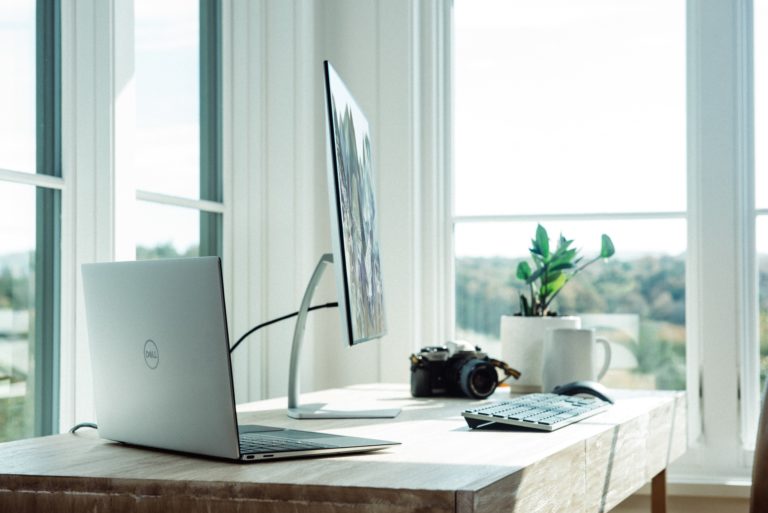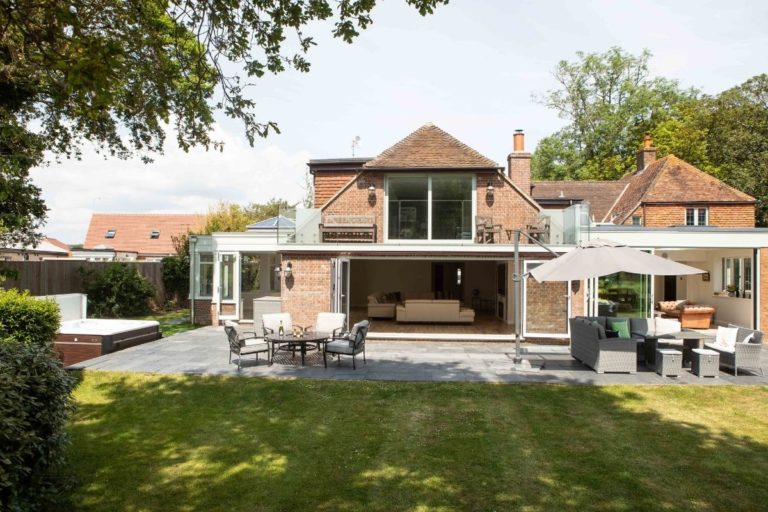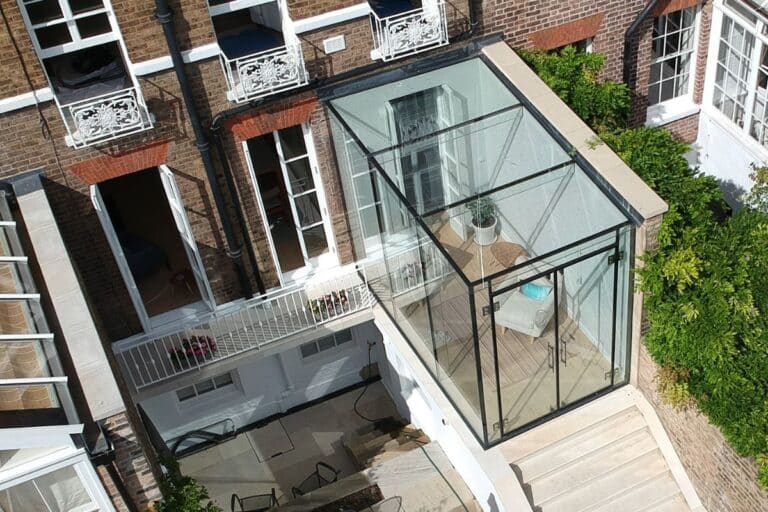If you are planning to add a conservatory, orangery, or frameless glass extension, one of your biggest concerns is likely the cost. Prices can vary significantly, depending on the type of structure, materials, size, and additional features.
The conservatory cost market is broad. Some companies offer off-the-shelf options or even flat-pack conservatories that you can assemble yourself. These tend to be cheaper but come with limitations. On the other end of the scale, bespoke designs offer custom-built solutions tailored to your home.
A high-quality, handcrafted conservatory or orangery is a long-term investment. While cheaper alternatives may seem appealing, they often come with hidden costs and may not meet structural or design expectations.
What Does a Bespoke Glass Extension Cost?
A custom-built glass extension requires a minimum budget of £25,000 for a small uPVC structure. However, the final investment will depend on several factors, including the type of structure you choose, the size, materials, and design features.
- Entry-level conservatories: Start at £25,000
- Typical custom designs: Range from £35,000 – £50,000
- Premium orangeries and large extensions: Can exceed £100,000
The more complex and luxurious the design, the higher the investment. If you’re looking for an estimate, the guide below will help you understand the factors that impact conservatory cost.
1. Type of structure
Your choice of structure greatly impacts the cost:
- Conservatories: Typically start at £25,000 – £40,000
- Orangeries: Mid-range cost, with large timber orangeries reaching £50,000 – £100,000
- Frameless Glass Extensions: Often misunderstood as a lower-cost option, these premium structures start at £35,000 for small designs and typically exceed £100,000 for larger projects
The size and complexity of the structure also affect the price. A large conservatory may cost more than a small orangery, and a large orangery could require more investment than a small frameless extension.
2. Frame material
The material you choose will impact both cost and aesthetics:
- uPVC – The most affordable option, available in limited colours.
- Hardwood Timber & Oak – A premium choice, handcrafted for durability and elegance.
- Aluminium – A modern, mid-range option, lightweight and energy-efficient.
While timber frames require occasional maintenance, they offer exceptional longevity and timeless beauty. Aluminium provides a sleek, contemporary finish, and uPVC is a cost-effective, low-maintenance solution.
3. Size of the Extension
The bigger your structure, the higher the cost.
Many homeowners make the mistake of compromising on size to save money. However, people rarely regret choosing a different frame material but often wish they had built a larger space.
A well-sized extension ensures your new space meets your long-term needs.
4. Glass-to-wall ratio
The amount of glass in your extension also affects conservatory cost.
- More glass = higher cost
- Dwarf walls can help reduce costs while maintaining insulation
- Full-height walls may be needed if you plan to place furniture like cabinets or bookshelves
Deciding on the right balance will help you control budget and functionality.
5. Type of Glass
Not all conservatory glass is the same. The wrong choice can make your extension too hot in summer and freezing in winter.
- Temperature and solar control glass prevents overheating
- Double or triple glazing improves insulation
- UV-blocking glass protects furniture from fading
A cheaper glazing option may seem like a cost-saving measure, but it can reduce comfort and usability.
6. Groundwork & Additional Construction
Your existing property and land conditions also influence the total cost.
- Older properties may require extra work to support the structure
- Uneven or unstable ground may need additional foundation work
- Listed buildings may require special permissions and materials
It’s also worth considering the cost of removing walls or making open-plan adjustments to integrate your extension with the rest of your home.
7. Finishing Touches and Décor
Final design elements also play a role in conservatory cost.
- Finials, decorative hardware, and lighting
- Blinds and shading options
- Furnishings and interior styling
While these elements add character, they also contribute to overall investment costs.
Why Choose a Bespoke Glass Extension?
At Room Outside, we believe that a fully bespoke conservatory, orangery, or frameless glass extension is the best way to achieve the glass room of your dreams.
- Over 50 years of experience
- Custom-designed to suit your property and lifestyle
- High-quality craftsmanship for long-lasting value
We offer a turn-key service, managing everything from design to installation.
Contact us today for a free, no-obligation consultation and let’s start designing your perfect glass extension.



